How Stress Impacts Digestion: The Power of the Brain-Gut Connection + VIDEO {Mind-Body Medicine}
The digestive tract is particularly vulnerable to stress via the brain-gut connection. Use these strategies to improve digestion by managing stress.
Have you ever “choked under pressure” or felt your “stomach in knots” when faced with a difficult decision? Is so, you are familiar with the powerful ways in which stress can influence digestion.
Subscribe to my YouTube Channel for more healthy recipes, lifestyle tips and more!
Affiliate Disclosure & Privacy Policy (please review our complete policy here): we use affiliate links and analytics on our website, social media posts and newsletter which utilize cookies placed on your browser to track sales activity. This post is NOT sponsored but may contain affiliate links. These statements have not been evaluated by the FDA and should not be considered medical advice or treatment. Please consult your personal health provider before making any changes to your diet or lifestyle.
All emotions create physiological changes, and stress is no exception. In broad terms, stress refers to any real or perceived threat or demand. Such stressors elicit adaptive responses within the body as you attempt to maintain homeostasis and ensure survival.
Stress can be acute in response to a large threat like a fire or chronic and insidious from aspects of daily life. Lifestyle factors such as an imbalanced diet, overtraining, not getting enough sleep and having a job you don’t enjoy can all increase your level of stress. Negative thinking also creates a stress response within the body.
The Brain-Gut Axis: How Emotions Impact Digestion
The digestive system is particularly vulnerable to the presence of stress, especially when it becomes chronic. This is because the nervous system and digestive system are closely intertwined in what is sometimes called the brain-gut axis.[1] The walls of your digestive tract are infiltrated by a network of nerve fibers called the myenteric plexus which contributes to the enteric nervous system. This enteric nervous system is part of the autonomic nervous system which receives signals from the brain and is sometimes thought of as a second brain within your gut. You have likely experienced this brain-gut connection before when you sense a “gut feeling,” “butterflies in your stomach” or anxiety-induced nausea.[2]
The biochemical and hormonal changes that occur in response to emotional stress have immediate and often persistent impacts on digestive health. The physiologic stress response is geared toward survival, so it focuses energy on dealing with the threat at hand, sacrificing processes like digestion and repair. Depending on the severity of the threat, this may cause your digestion to slow down or stop completely.
Stress induces changes in gastric secretion, gut motility, intestinal permeability, blood flow and inflammation. For example, we have long known that severe stressors like surgery or trauma cause the intestinal lining to become “leaky.” [3], More recent evidence is also exploring the impacts of chronic psychological stress on this important gut barrier. [4] Overall, these impairments in normal digestion can lead to constipation, diarrhea, gas, bloating, pain, nutritional deficiencies and imbalanced metabolism.

Emerging science also demonstrates that the microbes which inhabit our digestive tract and play many important roles in our health seem to respond directly to stress-related signals.[5] This stress-induced disruption of the microbiome can increase susceptibility to infections, influence weight and impact metabolism.
Over time, chronic exposure to stress may contribute to the development or worsening of a variety of more complex digestive diseases, including inflammatory bowel disease (IBD), gastroesophageal reflux (GERD), irritable bowel syndrome (IBS), peptic ulcer disease and food allergies. [6]
Improve Your Digestion by Managing Stress
Fortunately, there are several steps you can take to help manage the stress of daily life and improve your digestive health. Stress reduction strategies are key to healthy digestion as well as longevity, weight balance and robust immunity.
Get Moving to Balance Stress
Moderate exercise is one of the most effective ways to manage stress and maintain healthy digestion. Balanced physical activity relieves tension, improves blood flow and stimulates the release of endorphins from the brain which improve your mood and reduce the impacts of stress. Practices like tai chi and yoga that coordinate the breath with movement are especially effective at reducing the state of constant hyperarousal which is detrimental to digestion.
Cope with Life Stressors with Regular Relaxation
There are many effective strategies to help you cope with the inevitable stress of life and minimize its impacts on your digestion and overall health. Meditation, yoga, deep breathing exercises, tai chi and spending time in nature are some of my favorite practices for managing stress. Deep breathing triggers the parasympathetic nervous system which activates processes involved in rest, repair and digestion. When the body is in parasympathetic mode, blood flow and oxygenation to the digestive tract is increased, making digestion more efficient. Techniques like progressive muscle relaxation, visualization and mindfulness meditation are also effective ways to shift into a more parasympathetic state which favors relaxation and healthy digestion.
Build a Stress-Resistant Gut with Probiotics, Omega-3 Fatty Acids & Vitamins A and D
A healthy gut which houses a balanced microbiome is more resistant to the negative impacts of inevitable stress. Omega-3 fatty acids, fat-soluble vitamins A and D and balanced probiotics can all help heal the intestinal lining, reduce inflammation and provide a diverse array of beneficial bacteria. This makes your digestive tract more resilient to the harmful impacts of stress.[7]
Avoid Negativity to Heal Your Gut
Negative thoughts are a large contributor to stress in modern life. Learning to recognize your thoughts through mindfulness or other meditation techniques allows you to change your mindset. This not only reduces chronic stress but can also help you make healthier food choices that improve digestion. Anxiety, depression and other unresolved emotions are often at the root of overeating and poor food choices that can further stress digestion. Science has shown that changing your thoughts can improve digestion. Positivity and compassion improve the function of the vagus nerve which is crucial in the communication between the brain and digestive system. As such, practices such as loving kindness meditation help to balance the nervous system and improve digestion. [8]
Explore What Your Digestive Symptoms Can Teach You
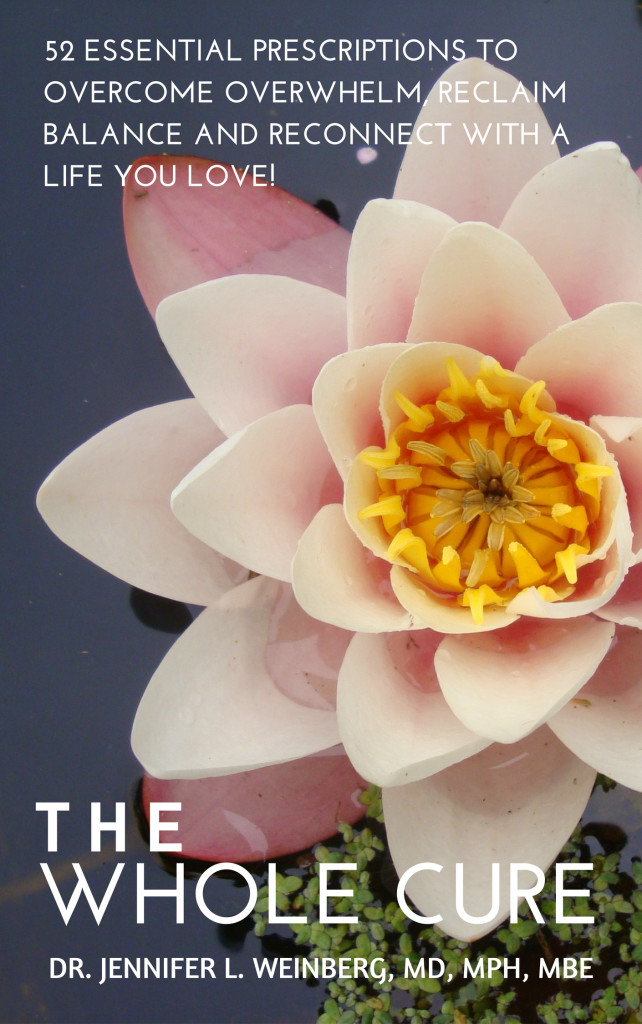 Your digestive system can be viewed as a barometer for how you are coping with life. Digestive symptoms often provide insight into the root of what is causing your stress, allowing you to move towards healing. For example, if you are prone to constipation you may explore where in life you are unable to let go. If you have chronic heartburn, you may look at where you might feel you have been “burned” or where you are holding onto a grudge or resentment. Exploring your digestive symptoms from this metaphorical perspective can help you notice your emotions, process them and release them so that you can better cope with stress.
Your digestive system can be viewed as a barometer for how you are coping with life. Digestive symptoms often provide insight into the root of what is causing your stress, allowing you to move towards healing. For example, if you are prone to constipation you may explore where in life you are unable to let go. If you have chronic heartburn, you may look at where you might feel you have been “burned” or where you are holding onto a grudge or resentment. Exploring your digestive symptoms from this metaphorical perspective can help you notice your emotions, process them and release them so that you can better cope with stress.
The next time you notice a gut feeling or your digestive system is acting up, honor this insightful system by paying attention to what might be going on in your life in general. When you learn to understand your emotions and responses to stress and adopt healthy ways to manage stress like those presented in The Whole Cure (affilaite link), you can more effectively digest both food and life!
Mindfulness education and practice is a big part of the Simple Pure Whole Solution! Here are a few resources that can support your mindfulness practice during times of uncertainty, anxiety, fear and calm:
Mindfulness Resources for Self-Healing:



- Download your free chapters and wellness prescriptions now and get started incorporating a more mindful approach into your life and building resiliency. You can also get your copy of The Whole Cure in paperback or Kindle edition from Amazon.
- My Mindfulness Resources for Crisis and Self-Healing Package provides you with professionally-designed worksheets, handouts and workbooks for creating habits and practicing tools that support optimal stress management, resilience and coping with difficulty.
- Guided meditations and relaxation exercises from my Breathe CD.
Mindfulness Resources for Health Care Practitioners:
- If you are a health coach or other health care professional, I heard from many of you requesting done-for-you content and tools for easy-to-incorporate mindfulness practices that you could use with your clients and patients. To address this need, I want to offer my Done-for-You Package of Mindfulness Resources for Crisis and Calm which provides professional mindfulness resources for coaching and sharing self-healing tools and practices to empower you to teach others how to disconnect from panic, fear and anxiety and build inner peace.
- My newest done-for-you workshop package Rest, Restore & Rejuvenate to Mindfully Manage Stress is the perfect way to offer support for stressful times and everyday optimal health. You can use this completely done-for-you workshop package with your clients or for a virtual teleworkshop or series of sessions. You get everything done for you, from a complete word-for-word script to handouts for your clients to a guided exercise to a complete instruction guide so you are ready to confidently share this guidance with people right away.
Have you noticed how stress impacts your digestion? What do you do to de-stress?
This article by Dr. Weinberg originally appeared on The Chopra Center blog!
If you enjoyed these healthy tips, I welcome you to join my free Insider’s Community for special offers, members-only opportunities, wellness news, recipes and more!
You can also get started with these resources for meaningful stress management:
- FREE Stress Management Guide with a preview of The Whole Cure (affiliate link) and several wellness exercises to get you started building your toolkit of habits for a more balanced life!
- The Whole Cure Lifestyle Transformation Mindset Module one of my most popular online group coaching programs for lasting transformation and meaningful stress management that can shift your entire life! Commit to yourself now!
- My books, The Simple Pure Whole Wellness Solution and The Whole Cure (affiliate link) guide you in exploring foundational habits for a centered, meaningful life where stress does not take over.
- Breathe: Guided Relaxation & Breathing Exercises to Help You Find Your Whole Cure is now available! This special resource will support you in bringing The Whole Cure (affilaite link) to life! The individually-available breathing exercises and guided relaxation experiences (starting at $0.99!) can be used anywhere, at any time of day. Try using them when you feel panic, stress, anxiety or just want a few moments of calm in your day. They are also helpful for coping with pain and helping the body prepare for rest and relaxation.
- 3-Month Simple | Pure | WholeTM Wellness Solution Essential Lifestyle Coaching Program! Get personalized one-on-one attention and transformational coaching to address your physical and emotional body, lifestyle and habits with customized virtual transformational wellness coaching!
Simple Pure Whole Opportunities!
Medical Disclaimer: Information provided in this post and related resources is for informational purposes only. Jennifer Weinberg is not providing medical advice, diagnosis or treatment information. The information is NOT intended as a substitute for the advice provided by your physician or other healthcare professional. Every body is unique so be sure to check with your health care professional before making any dietary or lifestyle changes taking any medication or nutritional supplement or using any treatment for a health issue. Do not use this information provided for diagnosing or treating a health problem or disease. If you suspect you have a medical problem please contact your healthcare provider promptly and do not disregard professional medical advice based on anything on this website. This website and related resources are not intended to diagnose, treat, cure or prevent disease and do not create a doctor-patient relationship between you and Jennifer Weinberg. These statements have not been evaluated by the FDA. These products are not intended to diagnose, treat, cure, or prevent any disease.
This post was shared with: Healthy, Happy, Green & Natur
al Party Hop , Healthy Living Link Party, Family Fun Friday, Friday’s Five Features, Blogger’s Spotlight Party, Saturday SharefestReferences:
[1] http://www.jpp.krakow.pl/journal/archive/12_11/pdf/591_12_11_article.pdf
[2] https://www.ncbi.nlm.nih.gov/pubmed/10737059
[3] http://journals.lww.com/jtrauma/Abstract/1998/06000/Intestinal_Permeability_Correlates_with_Severity.16.aspx
[4] http://ajpgi.physiology.org/content/278/6/G847
[5] https://www.ncbi.nlm.nih.gov/pubmed/20941511
[6] http://ajpgi.physiology.org/content/280/4/G519
[7] http://gutpathogens.biomedcentral.com/articles/10.1186/1757-4749-3-1
[8] https://www.ncbi.nlm.nih.gov/pmc/articles/PMC315602
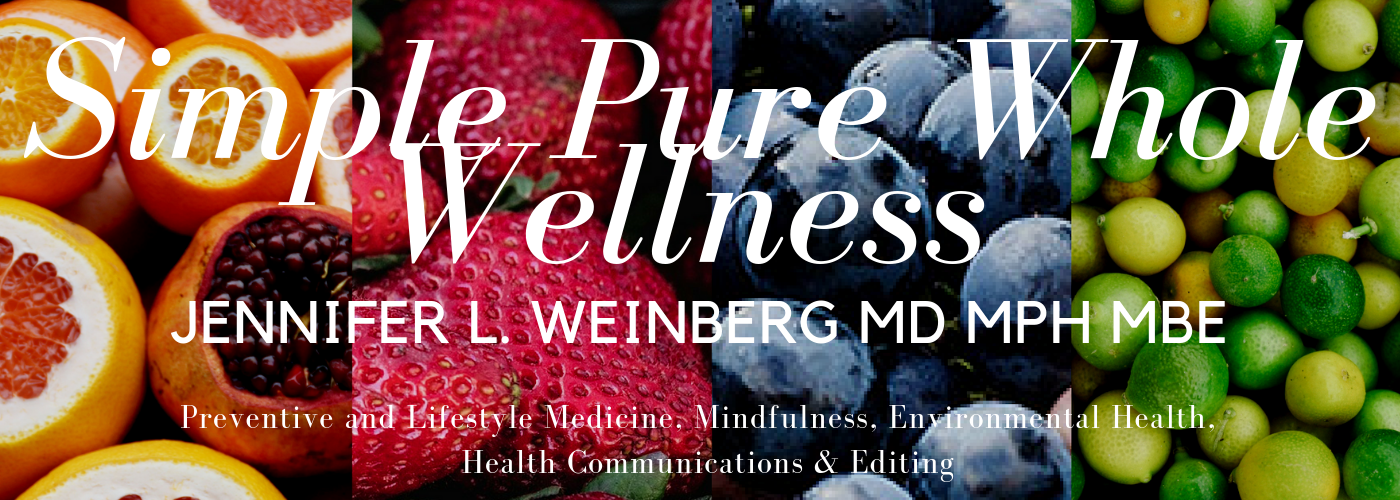

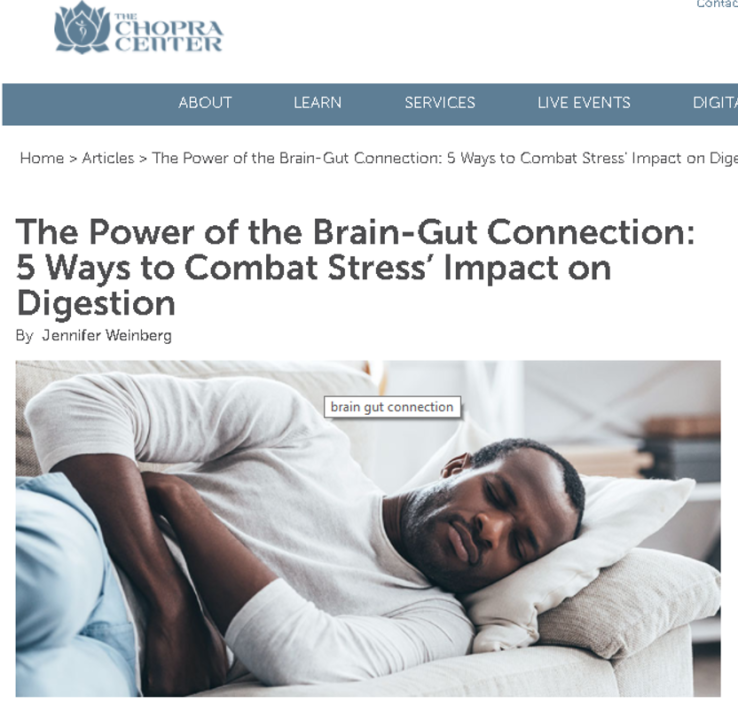


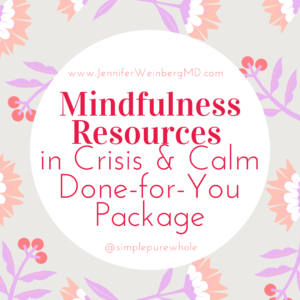
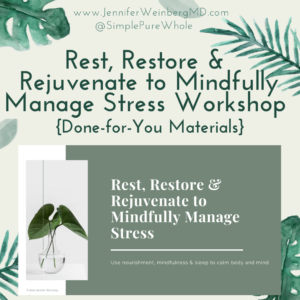
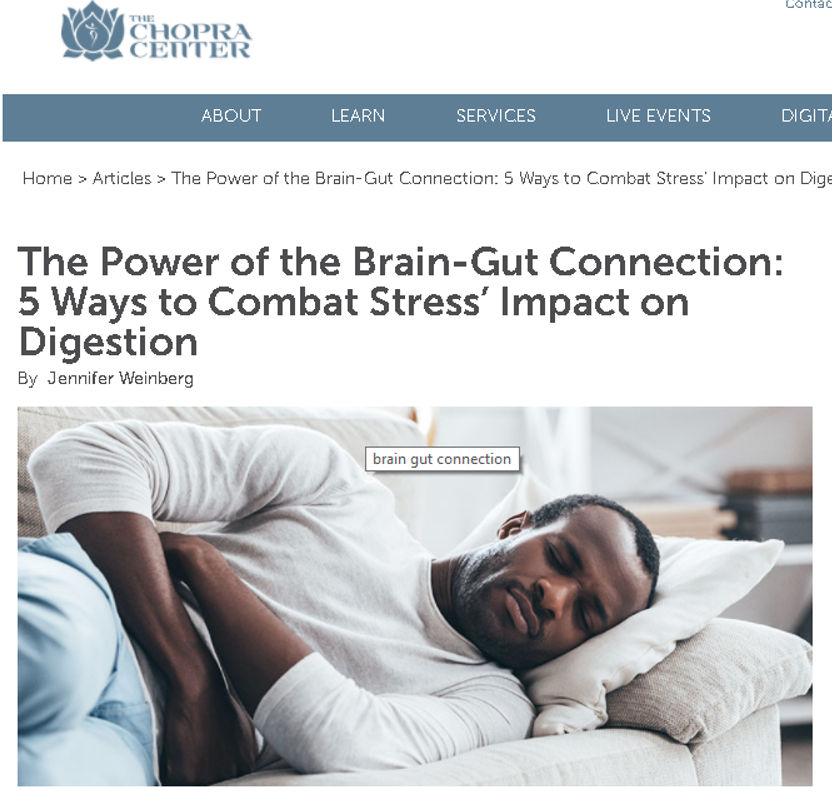

Comments
Deborah Davis
Hi Jennifer, As a longtime caregiver, I know first hand how stress affects my digestive system. It’s no joke! Thanks for sharing this valuable post with us at the Healthy Happy Green and Natural Party Blog Hop. I’m pinning and sharing.
Dr. Jennifer L. Weinberg, MD, MPH, MBE
Thank you Deborah! I agree that the impact of stress on our digestion and overall health is so powerful. I appreciate your shares and hosting!